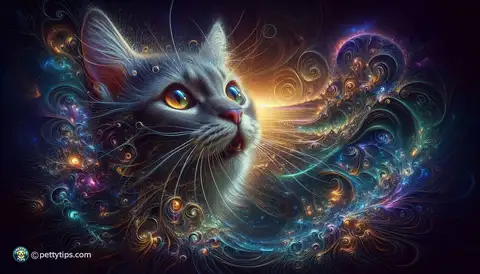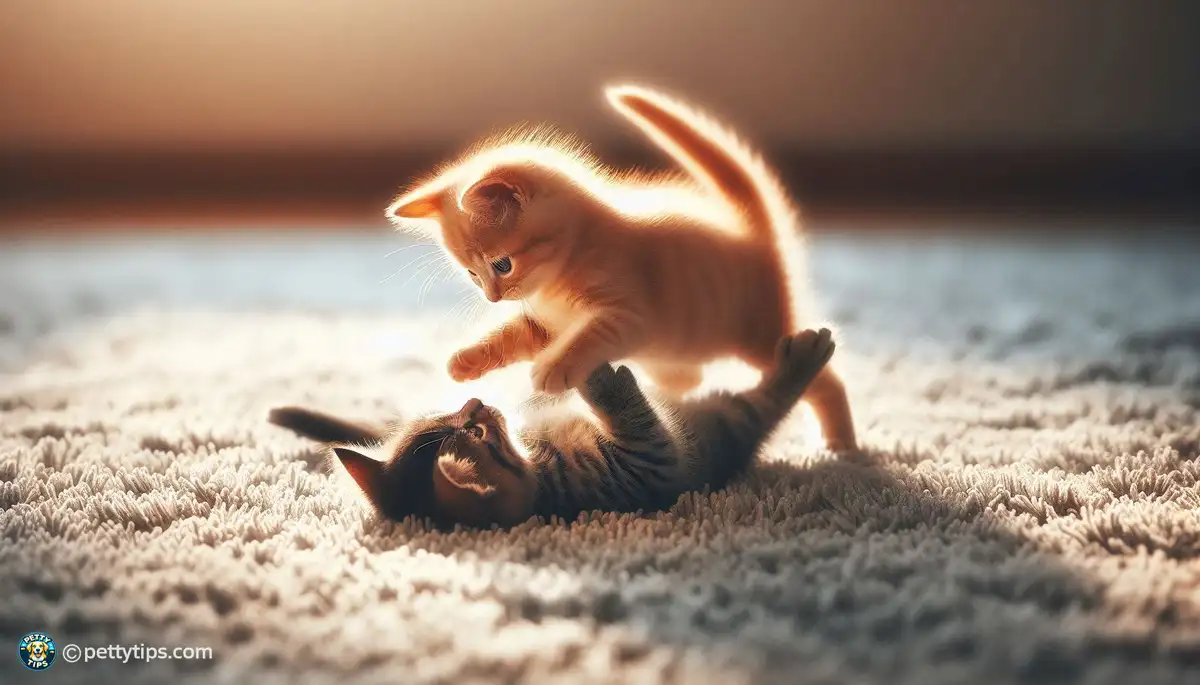
Unveiling the Mystery Behind Chirping and Trilling in Cats
Mark Sung - Sep 03, 2024 - 7 min read


Understanding the significance of play in the socialization process of cats is crucial for pet owners. Play serves as more than just a fun activity for your feline friend; it's an essential component of their development, particularly during their early stages of life. Kittens learn vital social skills through play interactions with their littermates and mother. These interactions help them develop appropriate social behaviors, communication skills, and physical coordination. As they grow, play continues to play a significant role in maintaining their social and mental well-being.
Play isn't limited to just interactions among feline family members. Cats also engage in playful activities with their human companions. For pet owners, engaging in play sessions with their cats strengthens the bond between them. Through play, cats learn to trust their owners and associate them with positive experiences. Additionally, play provides an outlet for cats to express their natural instincts, keeping them mentally and physically stimulated. Whether it's chasing a toy mouse or pouncing on a feather wand, these interactions contribute to a fulfilling and enriched life for both cats and their human caregivers.
Some cats may initially be hesitant to engage in play, especially if they are shy or timid. However, encouraging play is essential for their socialization and overall well-being. Start by creating a safe and comfortable environment where your cat feels relaxed and secure. Introduce interactive toys gradually, allowing your cat to explore and become familiar with them at their own pace. Patience is key; avoid forcing your cat to play but instead, use gentle encouragement and positive reinforcement to spark their interest. With time and patience, even the most reserved cats can learn to enjoy playful interactions and reap the benefits of socialization through play.
Solo play is a common behavior observed in cats, especially when they are alone or when their human companions are busy. During solo play, cats often engage in activities such as batting at toys, chasing imaginary prey, or exploring their surroundings. This type of play not only provides entertainment but also helps cats hone their hunting skills and maintain mental sharpness. Providing a variety of toys and stimulating environments encourages solo play and prevents boredom in solitary cats.
Social play involves interactions between cats, whether they are siblings, housemates, or outdoor acquaintances. Through social play, cats establish and maintain social bonds, communicate with one another, and establish social hierarchies. This type of play may include chasing, wrestling, grooming, and mock hunting. Social play is essential for kittens' development as they learn vital social skills and boundaries from their littermates and mother. For adult cats, social play serves as a form of exercise, stress relief, and socialization, strengthening their bonds with other feline companions.
Human-initiated play is a unique aspect of the bond between cats and their human caregivers. During these play sessions, pet owners actively engage their cats in playful activities using interactive toys, laser pointers, or feather wands. Human-initiated play strengthens the bond between cats and their owners, fosters trust and companionship, and provides mental and physical stimulation for the cat. It's essential for pet owners to understand their cat's preferences and play style to ensure enjoyable and enriching play experiences for both parties.
Play is essential for keeping cats mentally stimulated and promoting cognitive development. Engaging in playful activities challenges cats' problem-solving skills, enhances their spatial awareness, and encourages creativity. Puzzle toys, interactive feeders, and agility courses are excellent ways to provide mental stimulation through play, keeping cats entertained and engaged while promoting learning and development.
Regular play sessions are vital for cats to maintain optimal physical health and well-being. Playful activities such as chasing, jumping, and climbing help cats burn excess energy, maintain a healthy weight, and prevent obesity-related issues. Interactive toys that encourage physical activity, such as feather wands and laser pointers, provide excellent exercise opportunities for cats, promoting cardiovascular health, muscle tone, and joint flexibility.
Play serves as a natural stress reliever for cats, helping them unwind and relax after periods of rest or boredom. Engaging in playful activities triggers the release of endorphins, neurotransmitters that promote feelings of happiness and contentment in cats. For cats experiencing stress or anxiety, such as those adapting to a new environment or recovering from illness, play can be particularly beneficial in alleviating their emotional distress and promoting a sense of security and comfort.
Offering a diverse range of toys, scratching posts, tunnels, and climbing structures encourages cats to engage in different types of play and exploration. Experiment with toys of various textures, shapes, and sounds to appeal to your cat's natural instincts and preferences. Rotating toys regularly prevents boredom and keeps playtime exciting and stimulating for your feline companion.
Incorporate play sessions into your cat's daily routine to ensure they receive adequate mental and physical stimulation. Set aside dedicated time each day for interactive play, allowing you to bond with your cat while providing essential exercise and enrichment. Consistency is key; establish a predictable play schedule that your cat can anticipate and look forward to, promoting a happy and fulfilling lifestyle for both of you.
Encourage your cat's playful behavior by using positive reinforcement techniques such as praise, treats, or favorite toys. Rewarding desired behaviors during play sessions reinforces positive associations and encourages your cat to continue engaging in playful activities. Be patient and encouraging, celebrating your cat's efforts and progress as they explore new toys, learn new skills, and develop their socialization through play.